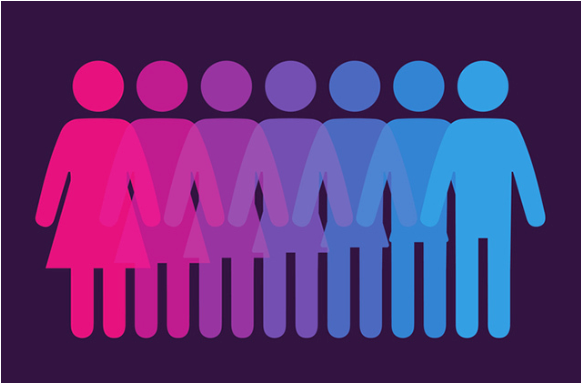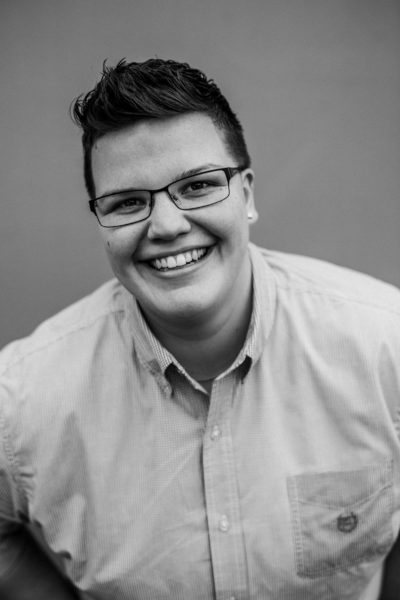 National Coming Out Day (NCOD) commemorates the March on Washington for Lesbian and Gay Rights on October 11, 1987, and was established to “promote a safe world for LGBTQ individuals to live truthfully and openly.” To mark this year’s NCOD, Berkeley Lab is inviting Michelle Blair-Medeiros to facilitate an interactive workshop discussing gender identity (including non-binary) and sexual orientation, as well as the differences between them. In the context of NCOD, some of our colleagues not only “come out” as LGBTQIA+, but they also come out as non-binary, and often need to explain what that means.
National Coming Out Day (NCOD) commemorates the March on Washington for Lesbian and Gay Rights on October 11, 1987, and was established to “promote a safe world for LGBTQ individuals to live truthfully and openly.” To mark this year’s NCOD, Berkeley Lab is inviting Michelle Blair-Medeiros to facilitate an interactive workshop discussing gender identity (including non-binary) and sexual orientation, as well as the differences between them. In the context of NCOD, some of our colleagues not only “come out” as LGBTQIA+, but they also come out as non-binary, and often need to explain what that means.
Participants will engage in self-reflection around social identities, intersectionality, and the ways in which our identities overlap to produce a variety of life experiences. Dialogue will focus on how these intersections impact the ways in which we see ourselves, as well as the perceptions that others have about us. This session will center on building community and trust among participants and will aim to initiate new conversations and opportunities for deeper understanding on how we self-identify, how our identities inform the ways we move through the world and how the workplace is part of what we need to navigate.
This event is sponsored by Berkeley Lab’s Diversity, Equity, and Inclusion Office and the Lambda Alliance Employee Resource Group. If you have any questions, please contact DEI@lbl.gov.
Date: Monday, October 7
Time: 12 noon – 1 pm
Location: Pers Hall, Building 54, Room 130
Join by zoom: https://lbnl.zoom.us/j/741765719
Michelle (she/her pronouns) currently teaches in the Sociology department at Woodland Community College (including a course on the Sociology of Gender and Sex) and manages California Department of Forestry and Fire Protection Greenhouse Gas Reduction fund grants in the City of West Sacramento and the City of Woodland. She received her master’s degree in Social Justice Education from the University of Massachusetts, Amherst.
Michelle is a Massachusetts native passionate about social justice and inclusion work. Her approach to the work is rooted in her white, first generation college student, low-income and queer lived experiences, and the philosophy that authentic human relationships are crucial in the struggle for liberation and equity. Michelle is passionate about finding new ways to engage community in collective inclusion work, supporting students in their academic endeavors, facilitating inter-group dialogues, designing social-justice based curriculums, and civic engagement and service learning. In her free time, you can find Michelle in the Crossfit Gym, in the swimming pool, or at home, with her wife Sara, watching the New England Patriots.

